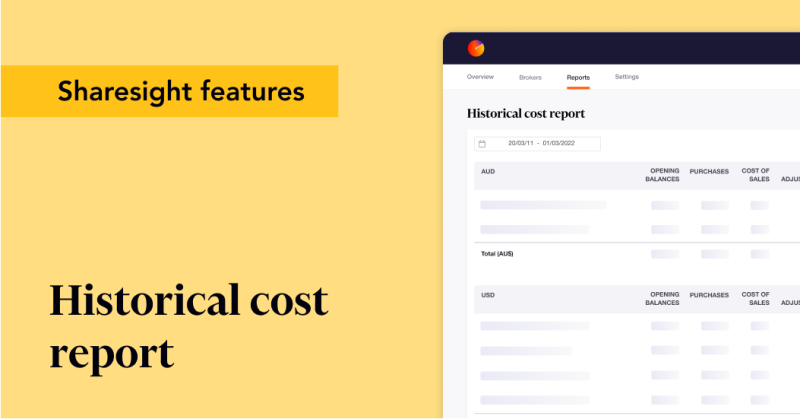How does inflation impact the stock market?
Disclaimer: This article is for informational purposes only and does not constitute a specific product recommendation, or taxation or financial advice and should not be relied upon as such. While we use reasonable endeavours to keep the information up-to-date, we make no representation that any information is accurate or up-to-date. If you choose to make use of the content in this article, you do so at your own risk. To the extent permitted by law, we do not assume any responsibility or liability arising from or connected with your use or reliance on the content on our site. Please check with your adviser or accountant to obtain the correct advice for your situation.
Periods of high or rising inflation tend to create volatility in the stock market, with many investors selling out of certain stocks and moving into others, or in some cases, selling out of their stocks entirely and focusing on other asset classes. However, in order for investors to make the right decisions about their portfolio, it’s important to understand inflation’s impact on the broader economy and how this can affect the stock market, including which stocks are "inflation-proof" and which are more sensitive to inflation. Keep reading to learn more.

What is inflation and how does it work?
Inflation refers to a broad rise in the price of goods and services across an economy. This causes the purchasing power of money to decrease, which has numerous flow-on effects throughout the economy. These effects are seen alongside different types of inflation:
Built-in inflation
Built-in inflation occurs when workers expect their salaries or wages to rise in line with the increased cost of living. The increase in these salaries and wages causes the cost of production to increase, which further increases the price of goods and services.
Demand-pull inflation
Demand-pull inflation is the result of demand outstripping supply in the economy. This occurs when too many consumers are chasing too few goods, causing companies to raise their prices.
Cost-push inflation
Cost-push inflation occurs when there is a supply shortage, often caused by supply chain problems that have increased the cost of ‘inputs’ to production. The result is that companies must raise their prices to reflect the increased production costs.
How does inflation affect the stock market and share prices?
In general, inflation brings down share prices because consumer confidence (and consumer spending) tends to decrease. Specifically, growth stocks tend to be worse off during inflationary periods, with investors often turning to value stocks instead. While some stocks are more "inflation-proof" than others, periods of high inflation tends to cause poor stock market performance overall. Rising inflation also means that investors need to make higher returns from their portfolio to achieve a positive real return.
Does high inflation mean high interest rates?
High inflation tends to go hand-in-hand with higher interest rates. This is because raising interest rates is one of the key strategies central banks use to help deflate the economy and bring down prices. How this works is that as interest rates increase, the cost to borrow money increases and consumer confidence decreases, resulting in lower levels of consumer spending and business investment. The overall effect of this is a decrease in employment, a decrease in the broad price of goods and services and a general slowing of the economy.
Does the stock market go up with inflation?
Many companies are negatively impacted by inflation, seeing lower revenue due to decreased consumer spending as well as increased operating and production costs. As a result, many investors are inclined to sell off these stocks, dragging down share prices, thus further encouraging investors to sell their shares. The net result is that the stock market as a whole tends to go down as inflation rises.
Which stocks benefit from inflation?
Generally, investors tend to prefer value stocks during periods of high inflation. This is because these stocks are seen as trading at a ‘discount’ compared to their intrinsic value, as opposed to growth stocks, which may have high share prices that are not necessarily justified by their revenue figures.
In terms of specific sectors, energy stocks have historically performed well during periods of high and rising inflation, as well as consumer staples, financial and utility stocks.
Should you invest in the stock market during inflation?
"If cash were like a listed company, and if a trader believed its value was going to drop by 7% per year (or whatever rate inflation is), then not only would they sell it, but they’d even look for ways to short it," says Travis Clark, MD and CEO at Marketech.
"And then they’d look for something that had already dropped in value to reinvest into. The stock markets have already taken a beating, so the stock market is exactly where they’d look.
"Switching out of a depreciating and non-producing asset like cash into a diversified portfolio of dividend-producing assets that have already been heavily depreciated has some merit, but not everyone is a trader and not everyone has the risk tolerance to move from cash to equities. Now is the time for extra caution."
Summary
Periods of high and rising inflation tend to have a negative impact on the stock market overall, due to declining consumer confidence and the resultant reduction in consumer spending and business investment. However, it should be noted that inflationary periods are not always long-term and they are certainly not permanent, so long-term investors may benefit from sticking to their strategy and holding onto the stocks in their portfolio, rather than selling their stocks for a loss. Alternatively, investors may wish to shift their asset allocation towards "inflation-proof" stocks such as those in the energy, utilities, consumer staples and financial sectors.
Track all your investments in one place with Sharesight
Thousands of investors worldwide are already using Sharesight to track the performance of all their investments in one place. What are you waiting for? Sign up and:
-
Track all your investments in one place, including stocks in over 40 major global markets, mutual/managed funds, property, and even cryptocurrency
-
Automatically track your dividend and distribution income from stocks, ETFs and mutual/managed funds
-
Run powerful reports built for investors, including Performance, Portfolio Diversity, Contribution Analysis, Multi-Period, Multi-Currency Valuation and Future Income (upcoming dividends)
-
Get the true picture of your investment performance, including the impact of brokerage fees, dividends, and capital gains with Sharesight’s annualised performance calculation methodology
Sign up for a FREE Sharesight account and put your investment portfolio in the best position to navigate market volatility today.
FURTHER READING

Sharesight nominated for 2025 Wealth Tech Innovator of the Year
Sharesight has been chosen as a finalist in the 2025 Australian Wealth Management Awards, in the Wealth Tech Innovator of the Year category.

Prepare your annual accounts with our historical cost report
Sharesight's historical cost report is a powerful tool for investors who need to prepare annual accounts or financial statements with mark-to-market accounting.

Sharesight product updates – July 2025
This month's focus was on rolling out predictive income forecasting, as well as improved cash account syncing across different brokers and currencies.